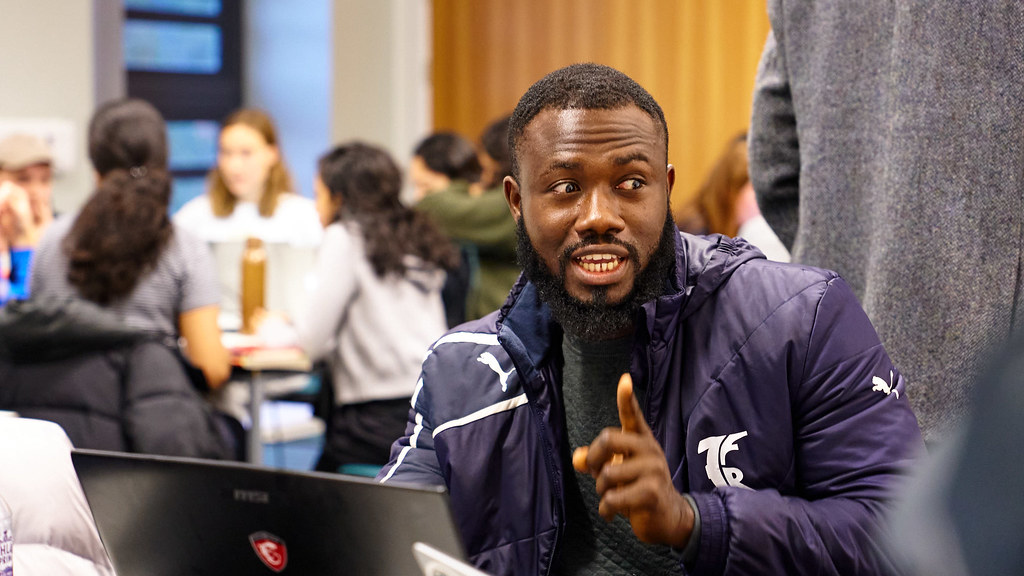Addressing a current world challenge
Lithium mining, crucial for producing batteries in electronic and electric vehicle industries, presents real and significant environmental and societal challenges. Every year, we set our students a group project to investigate the complexities of these challenges and find solutions. During the project, all students take on roles as various stakeholders in the lithium mining industry, including local communities, NGOs, governments, and mining companies.
We need to reduce our dependence on fossil fuels... this is where lithium is important because it's a key component in the batteries. - Dr Emma Emanuelsson Patterson, Department of Chemical Engineering
Learning through diverse perspectives

The project brings together students from different disciplines across the university, including engineering, social policy, and management. Working together like this mirrors the collaboration needed to find solutions to multifaceted environmental issues. Each student takes on a stakeholder role to better understand through experience the diverse perspectives involved in managing a problem like lithium mining.
Working on this project was a valuable dual learning experience - delving into the complexities of the project itself while gaining insights from individuals with diverse academic backgrounds. I would definitely recommend it!- Elise Courbon, MSc Decarbonisation
In the process, one of the main challenges that the students face is finding solutions that satisfy the diverse needs and interests of all stakeholders. They have to quickly absorb and analyse complex information about lithium mining, including its technical, environmental, and social aspects.
We got to hear from people from different fields, got to negotiate, and converse. So, it was more of an educated experience and I would say it’s a good one. - Aruomah Emmanuel, MSc Environmental Engineering
Developing skills and awareness with a global mindset
By recreating how this challenge would be tackled in the real world, the students hone their skills in negotiation, teamwork and communication. They learn to advocate for their assigned stakeholder’s interests, sometimes in contrast to their personal beliefs, while discovering the necessity of international cooperation in addressing environmental issues. Through communicating across disciplines and cultures, students gain a real appreciation of different perspectives in solving complex problems.
I’m able to humanise the whole process... There's actually an emotional effect going on which needs to be considered. – Anna Tassie, MSc Environmental Engineering
Preparing future environmental leaders

By challenging students to solve real and complex world problems through multidisciplinary learning, the project aims to prepare students for life after university. It empowers them to develop the skills, understanding and perspectives necessary to lead on sustainable solutions. It not only educates about the environmental impacts of lithium mining but also helps equip a generation of engineers committed to environmental conservation and sustainable development.